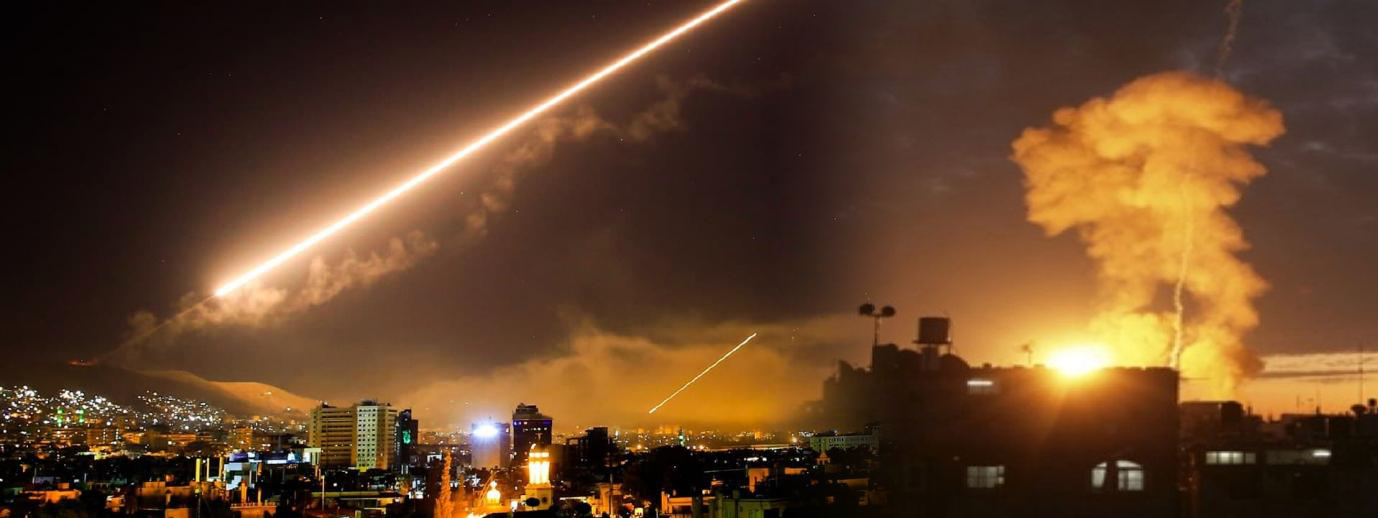Although the military strikes launched by Israel inside Syria do not reflect the adoption of a new approach by Tel Aviv in dealing with the developments on the ground in Syria, the strikes’ proximity to the Russian base in Tartus is noteworthy. An argument can be made that this change in Israel’s policy on Syria aims to issue several warnings both to its regional opponents and Moscow.
On August 15th, Israel launched a military operation in Syria, in the southern countryside of Tartus, targeting shipments of missiles from Iranian sites to the Lebanese Hezbollah. The attack killed three officers and wounded three others. It marked the 19th military operation launched by Israel against sites affiliated with Iran, the Syrian regime, or armed militias since the beginning of this year. The timing of this attack can be explained in light of four main motives:
A warning to Moscow: The latest Israeli military strike comes amid rising tension between Israel and Russia over a change in the former’s stance on the conflict in Ukraine. While Israel was formerly reluctant to openly take sides, it recently has begun to criticize the invasion, especially after Yair Lapid became Prime Minister. This appears to have been one of the reasons that prompted Russia to dissolve the Jewish Agency, which is responsible for regulating immigration to Israel, accusing the agency of “violating privacy laws”. Although Israel remains keen on continuing communication and coordination with Russia in Syria, Moscow’s move could push it to change its stance. This could explain Israel’s intentional targeting of areas close to Russia’s only naval base on the Mediterranean, and the military base in Hmeimim. More precisely, through these attacks, Tel Aviv may be trying to pressure Moscow to refrain from moving forward with the implementation of its decision regarding the Jewish Agency, by hinting that this would reduce the level of security coordination in Syria.
Responding to Revolutionary Guard maneuvers: It was noteworthy that the new military strike came just two days after the Iranian Revolutionary Guard announced that it had conducted live tests on medium-range missiles and Iranian-made rocket launchers. Iran also installed launchers in the Al-Mayadin desert, east of Deir ez-Zor, and fired a number of missiles randomly towards the desert. Israel therefore wishes to demonstrate that it will not allow Iran to strengthen its military presence inside Syria or threaten Israeli security by relying on long-range military capabilities, such as ballistic missiles.
Pressuring Hezbollah: The Lebanese Hezbollah has recently become involved in the escalation between Iran and Israel, referencing the dispute between Israel and Lebanon over the Karish gas field. Hezbollah threatened that “no one can export oil and gas in the region as long as Lebanon cannot do so.” Hezbollah is thereby also sending a message to Israel, warning that its insistence on expanding the scope of the confrontation with Iran will backfire. It will prompt action from militias loyal to Tehran to raise the cost of Israeli operations against Iran’s nuclear and military facilities and sites in Syria.
Hezbollah’s intention to escalate in the confrontation with Israel was illustrated by the warnings it issued during Israel’s military incursion into Gaza which targeted the Islamist “Jihad” movement. On August 9th, Hezbollah’s leader Hassan Nasrallah warned against any Israeli attempts to target Palestinian leaders in Lebanon, adding that “any attack on any human being in Lebanon will not go unpunished or unanswered.” The group thereby aligned with the Iranian position on the recent Israeli attack on Gaza, demonstrated by the visit of “Jihad” leading figure Ziad al-Nakhala’s to Tehran on August 6th. During the visit, Nakhala met high-ranking Iranian officials, notably the commander of the Revolutionary Guard Hossein Salami.
Israel’s last strike in Syria therefore aimed at pressuring on Hezbollah, and to prevent it from enhancing its military capabilities by transferring missiles from Iranian sites in Syria to Lebanon. This suggests it is likely that Tel Aviv no longer rules out the possibility of military confrontations with the group at some point.
Imminent conclusion of a nuclear deal: It appears that the nuclear talks between Iran and the 4+1 group, with the indirect participation of the United States, are nearing a conclusion. Statements from Iran as well as the Russian representative to international organizations, Mikhail Ulyanov, both support this conclusion. Although the final outcome of the negotiations remains unclear, Israel’s strike appears to represent its “on-the-ground” proactive response to these developments. It seeks to confirm that, whatever the outcome of the negotiations, Israel will not hesitate to launch military strikes against any of its adversaries: Iran, Hezbollah, and the Syrian regime, anywhere, in order to protect its interests.
This pattern of Israeli strikes is likely to continue in the near future. Iran and Israel remain resolved on conflicting trajectories, as the former seeks to consolidate its military presence in Syria, while the latter is actively seeking to undermine this effort. Moreover, the situation on the ground in Syria seems to be changing as a result of the Russian-Ukrainian war, and is in particular causing growing differences between Moscow and Tel Aviv.


